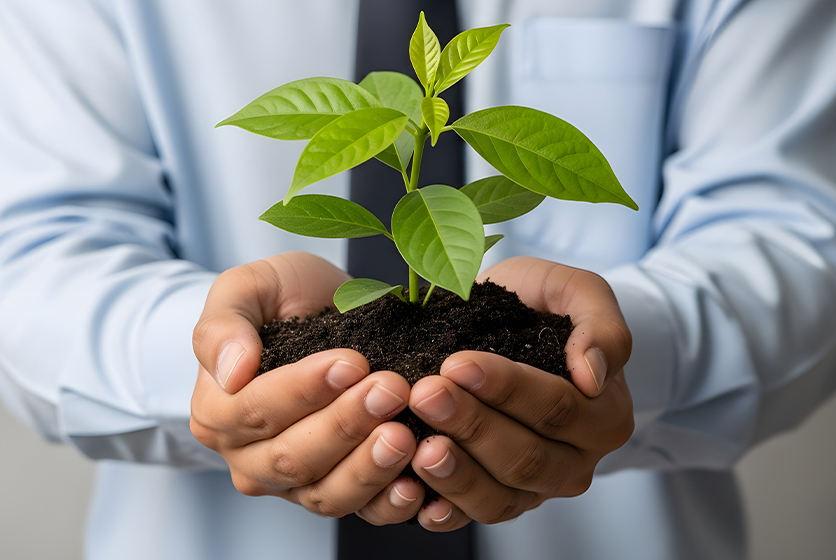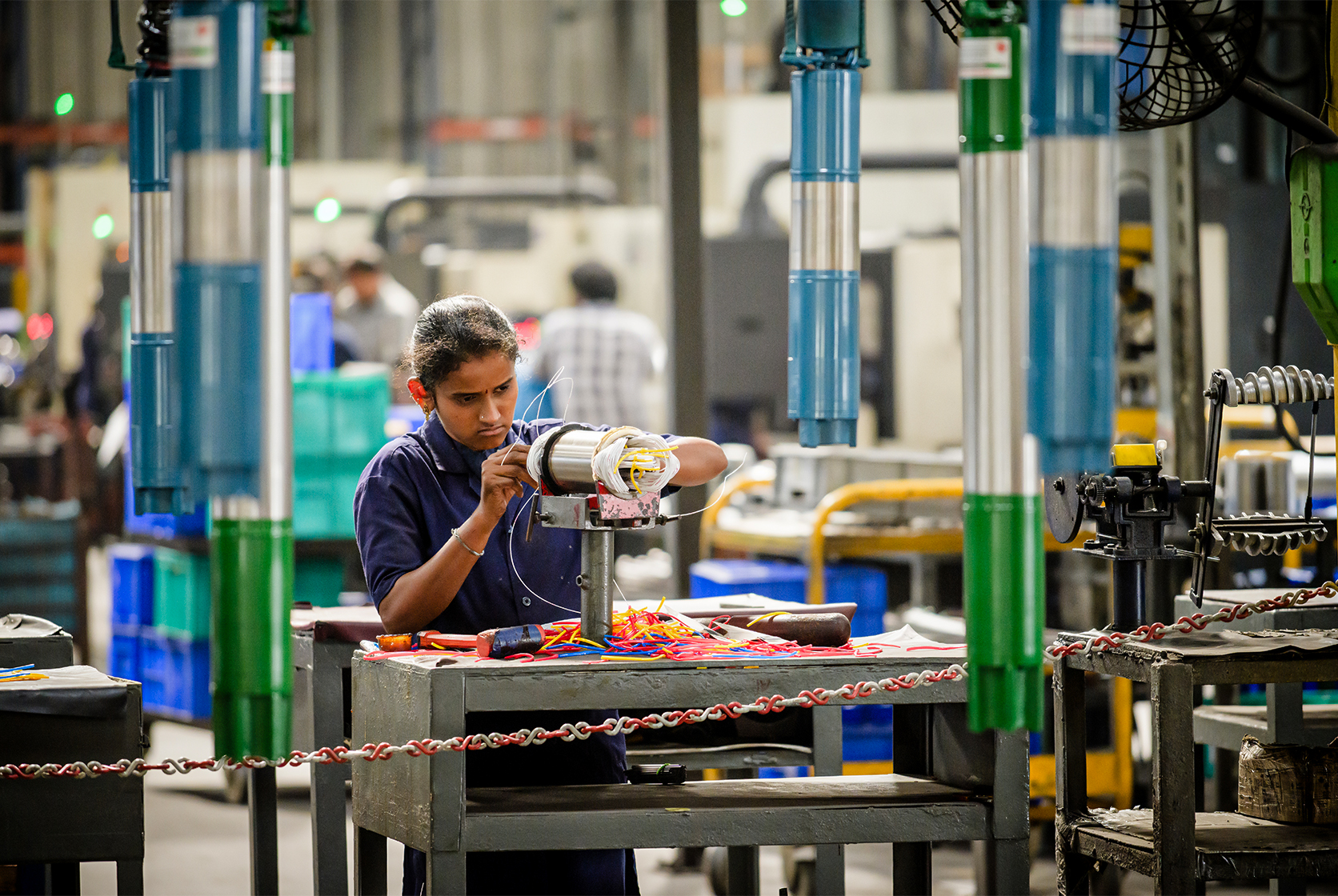One Nation. One Tax. One Flow - GST & Pumps
In 2017, India did something that had almost all accountants smiling – it introduced the Goods and Services Tax (GST). This was accomplished after nearly a decade of consultations, debates, and numerous PowerPoint presentations. This comprehensive tax was brought about to meet several objectives such as:
-
Replacing a fragmented system consisting of multiple taxes such as octroi, excise duty, service tax, and central sales tax, to name just a few.
-
Creating a unified ‘One Nation, One Tax’ system that would also simplify compliance.
-
Increasing transparency & reducing the informal economy.
-
Boosting competitiveness in the manufacturing sector.
Think of GST as a ‘tamed’ river. Before this system, each state had its own unyielding check valve, not only slowing down the flow, but also making it unpredictable. Under the ‘One Nation, One Tax’ system, the flow has become smoother – less turbulence, more progress.
In September 2025, the GST was made even simpler - the erstwhile multiple slabs turned into two primary rates: 5% & 18%.
Pump Industry – riding the wave
Most pumps & pump products fall under the 18% slab. The pump industry – a vital lifeline for agriculture & industry – has therefore seen interesting changes due to this new GST rate.
At the big-picture level, GST has turned out to be a hero for productivity:
-
Obfuscating hidden costs – gone.
-
Logistics headaches – gone.
-
State-dependent checkpoints – gone.
-
Input tax credits – welcomed.
-
Cleaner books – welcomed in.
-
‘Made in India’ pumps have stronger credibility – which has exporters smiling (just like those accountants).

Who’s swimming strong now?
(Yes, we are staying with the water analogy even now.)
If you were to take a bird’s-eye (or should we say fish-eye?) view of the pump industry, then you could state that it consists of manufacturers (like us), dealers (like our 1700-strong network), and customers (like you). It is delightful to note that each of us is getting to enjoy some of the impact of GST:
-
Customers get the benefit of increased transparency with properly billed products, complete with a warranty. Yes, Texmo Industries & Taro Pumps dealers have been doing things transparently ever since the beginning but now it’s the law too. Customers get to enjoy placing higher trust in pump manufacturers. You don’t have to wonder about the ‘extra charges’ now.
-
Dealers & distributors benefit from smoother inter-state movement & input tax credits. E-bills & digital invoicing have propelled improvements in delivery timelines too. Our dealers also use this opportunity to converse meaningfully with buyers, especially farmers, on the transparent invoicing & tax implications without boring them to tears.

-
For most manufacturers, low-quality pumps made in the unorganised sector have posed a complex challenge. With GST 2.0, we now operate in a more standardised & transparent environment. Which is always a good thing! According to the Indian Pump Manufacturers Association (IPMA), there are over 800 manufacturers who make more than 1 million pumps a year. Imagine the scenario where these manufacturers & products get to enjoy a simpler world of taxation.
Digital is the new normal (or, Even GST needs smartphones)
GST 2.0 is digital-first.
The pump industry has been encouraged to go digital when it comes to compliance, invoicing, online filing, e-bills, etc. Such comprehensive digital integration also means that manufacturers:
-
Don't have to turn a simple task into five folders and ten signatures.
-
Can focus more on productivity rather than paperwork.
-
Can support their dealers even more with input tax credits.
-
Enhance customer value & have improved traceability – after all, you do want to know where your pump came from.
Dealing with a few bumpy waves
GST 2.0 comes with a unique set of calm ponds & waterfalls for the pump industry.
Makers of agricultural pump-sets must deal with the fact that agricultural water pumps are in the 18% slab. What has this led to, or may lead to? A few of the important ‘side-effects’ of this may be:
-
Decline in sales.
-
Increased pump prices which may affect farmers.
-
More customers may turn to unbranded, or kit pumps manufactured in the unorganised sector.
Small business owners may also have to deal with cash flow issues because GST requires an upfront payment of tax.
There may also be a steep learning curve for a few businesses operating in this space.
Riding the wave with panache

GST has brought about a paradigm shift in taxation. Going from complexity to clarity is always a good thing everywhere! We are confident that we can stride into the future of a more competitive pump industry with:
-
Integrated operations – with stronger focus on dealer growth & quality.
-
Streamlined logistics – faster, smarter, & error-free deliveries.
-
Transparency - reinforcing our commitment to authenticity & openness.
-
Sustainable progress - balancing revenue needs with growth.
-
Digitisation - leveraging digital tools to make compliance as easy as turning on a pump.
Pumps are more than machines - we know that they connect farmers to productivity, homeowners to peace of mind, and urban infrastructure to growth. Therefore, this opportunity for growth will be integrated seamlessly into our everyday life – much like the flow of water through a well-engineered pump.
#InterestingInfo
-
Coimbatore, the home of Texmo Industries & Taro Pumps, is often called the ‘Pump City of Asia’ and caters to around 40% of our country’s motors & pumps demand.
-
The Indian pump market is growing at a CAGR of around 5.6% & should touch USD 6.3 billion by the year 2030.



